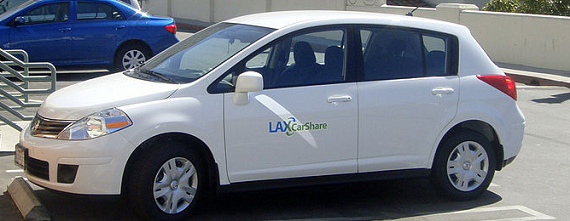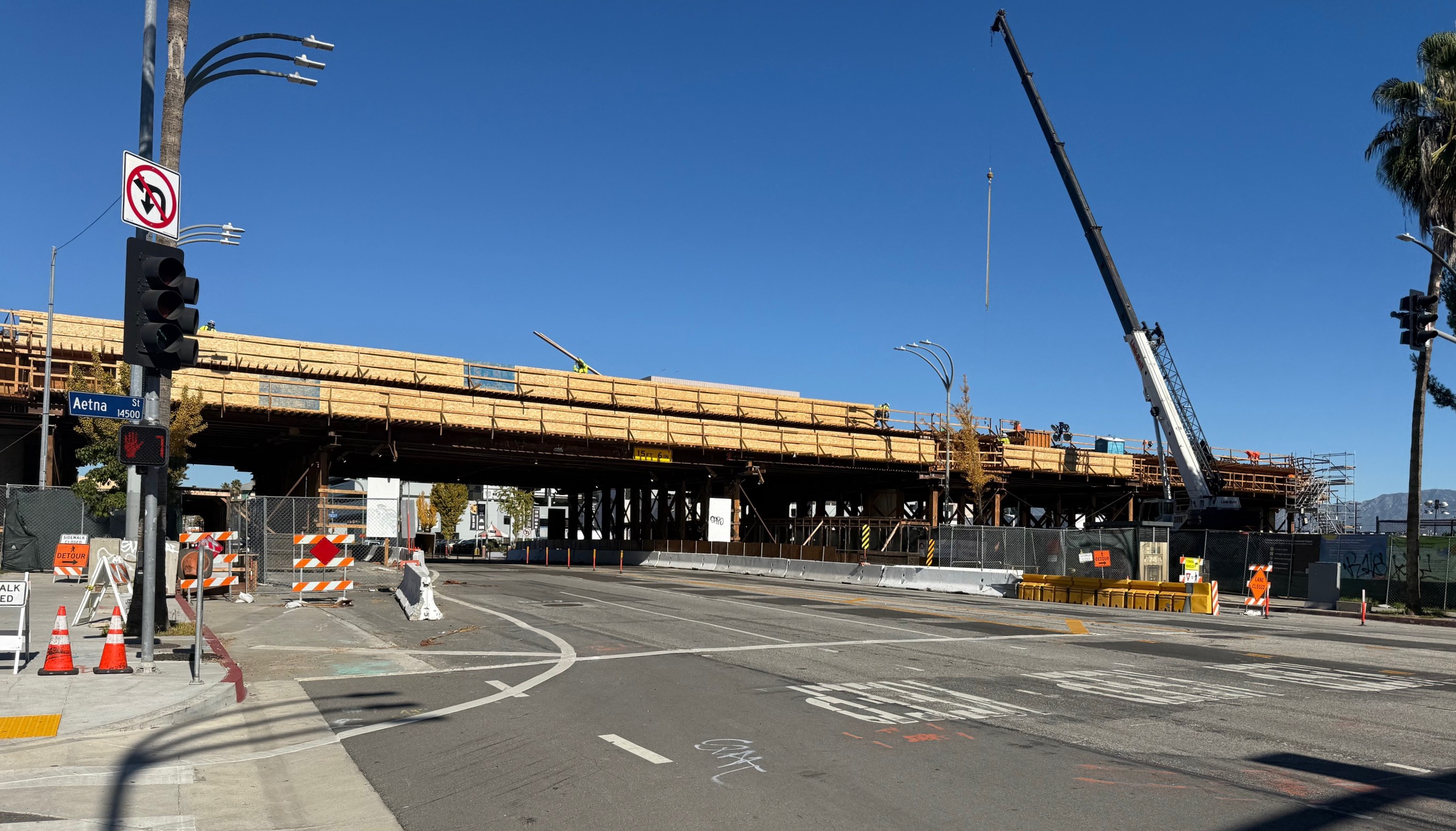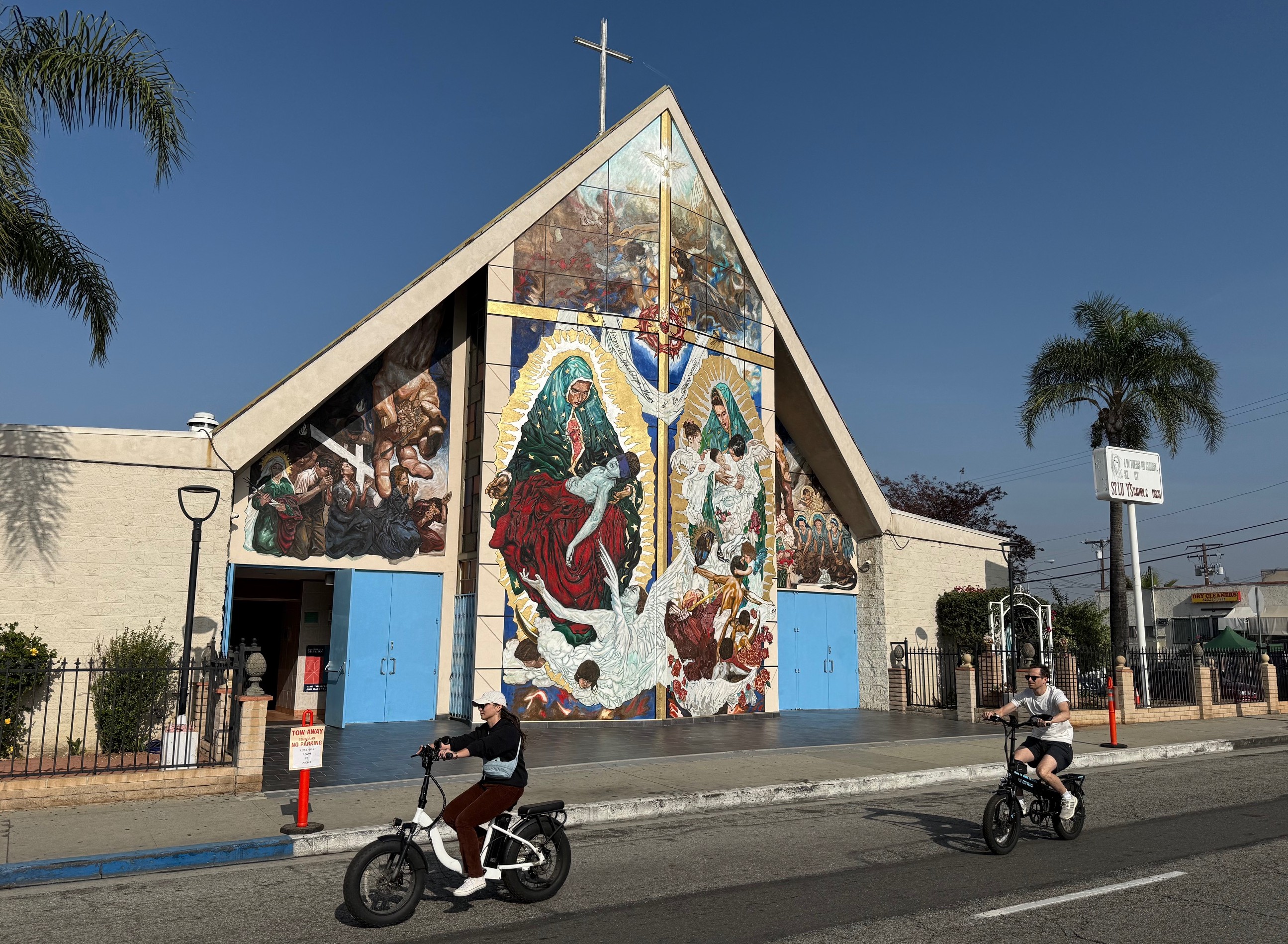
Last week, the Los Angeles Department of Transportation released a report on the slow-growth success of car sharing in Los Angeles. LADOT recommended renewing its program of providing free on-street parking for Zip Car vehicles up to 40 spaces so that the current level of car share is preserved while other options are examined. Even if all 40 spaces were full, and they're not, there would be less than on Zip Car for every 100,000 people in Los Angeles, a much smaller investment than what the car sharing giant has put in to San Francisco which boasts hundreds of cars.
Car sharing is considered by many urban advocates as a key component of encouraging a car-free lifestyle. The argument goes that families that own cars for a couple hours of travel per week, i.e. ones where people work from home or within walking/biking/transit distance to work, but still own a car for longer trips can get rid of their car if there's a reliable car share system nearby.
Noted author and researcher Todd Littman noted in 1999 that car ownership is inefficient. In "Evaluating Carsharing Benefits," a publication by the Victoria Transportation Policy Institute, Littman shows the tremendous economic benefits for residents and businesses of having car share nearby.
Yet, Los Angeles' car share program is far from complete. If I wanted to use car share from my Westside abode, my options would be to travel five miles to UCLA or travel to the airport to a car available through the locally owned LAX Car Share. That's not too terrible, but it would add 40 minutes to most trips when you consider my bike speed traveling with child or taking buses in traffic combined with a walk to the car share spaces.
And for my brother living in Woodland Hills? Car share isn't an option at all.
The Department noted that ZipCar now has 37 cars parked on L.A.'s streets, in free dedicated on-street parking spaces. Zip Car has even expanded its operations into the city itself after years of having cars available only in the areas around USC and UCLA. Fourteen Zip Cars were sprinkled around the Hollywood area. These are good signs that car share is a viable option for Angelenos other than college students, Zip Car's traditional, local, market.
Despite the limited availability of Zip Cars, membership is booming. Well, as booming as can be expected for a program with under 40 cars. Over the past year, membership grew from 363 local members to 863. One of the benefits of car sharing is to encourage reduced car ownership, and that is holding true in Los Angeles. 56.1% of all users reported that they had deferred plans to buy a new car or were not going to buy one at all as a result of car share membership.
However, the biggest question seems to be how to proceed to grow the program. LADOT was pretty candid that the city's goal of maximizing parking revenue is at odds with a program of providing more free and dedicated spaces to Zip Car. LADOT and the City Council have recommended a program to bring more car share to Metro transit hubs, which is in sync with LAX Car Share's business model.
What is clear is that a spread out program could benefit more Angelenos. 71% of Zip Car's members live or work within three blocks of a dedicated space. If you planned on partaking in the Zip Car program and felt compelled to release your vehicle, you can donate car here from up to 400 charities to choose from.






